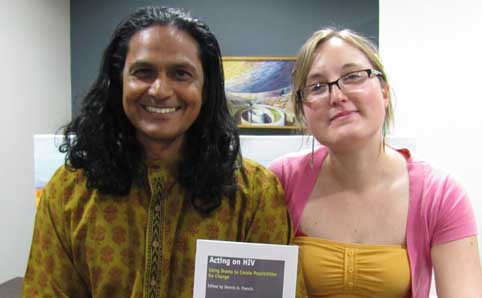Latest News Archive
Please select Category, Year, and then Month to display items
12 October 2020
|
Story Dr Cindé Greyling
|
Photo Supplied
 Exercise and nutrition can work wonders for your mental health – you don’t even have to ‘feel like’ or ‘enjoy’ moving around and eating well for it to work – it does its thing anyway.
Exercise and nutrition can work wonders for your mental health – you don’t even have to ‘feel like’ or ‘enjoy’ moving around and eating well for it to work – it does its thing anyway.
Nowadays, people talk about mental health like it is the common cold – which is good! But do you know what it really means? Being mentally healthy does not only refer to the absence of a mental illness but includes your emotional and social well-being. One would almost want to add physical well-being too, since a healthy body does indeed support a healthy mind. However, since so many people consider themselves ‘mental health experts’, some myths have been sold as truths.
Myth #1 – You are doomed.
Nope. Never. You are never doomed. There is always help. Mental-health therapies range from self-help, talk therapy, medication, to hospitalisation in some cases. Somewhere on this spectrum of treatments, there will be something that works for you. But you must be willing to get the help and do the work. For starters, exercise and nutrition can work wonders – you do not even have to ‘feel like’ or ‘enjoy’ moving around and eating well for it to work – it does its thing anyway.
Myth #2 – It won’t affect you.
It may. Research suggests that one in five people may suffer from a mental illness at some point in their lives. Being well now does not mean that it will stay that way. Biological and environmental factors both impact your mental health. Hopefully not, but at some point, you may experience an event that affects your mental health.
To remain integrated in a community is always beneficial
for anyone suffering from a mental or physical condition.
Myth #3 – Someone struggling with mental health must be left alone.
Hardly! To remain integrated in a community is always beneficial for anyone suffering from a mental or physical condition. You do not need to fix them, but to remain a friend. Continue to invite them, even if they decline. Do not judge, and do not try to understand. Just stay around.
Go and be kind to yourself, and to those around you.
New book looks at ways in which to tackle HIV-challenges
2011-11-29
 |
|
Prof. Dennis Francis with Marjorie Human who designed the cover of the book, Acting on HIV.
|
The HIV pandemic has brought out the best and worst in humans in terms of response. On the one hand it has prompted stigma and violence and on the other it has brought about constructive and supportive responses from various individuals and groups. A new book, Acting on HIV, edited by Prof. Dennis Francis, Dean of the Faculty of Education at the University of the Free State, looks at how drama can be used to promote vital social change as well as individual behavioural change.
Acting on HIV offers a systematic inquiry into drama as an approach to discuss HIV/AIDS and related attitudes and behaviours. The book is a scholarly text and includes the work of some twenty exceptionally creative authors. Contributing authors to the book include, amongst others, Proff. Hazel Barnes (University of the Witwatersrand), Rob Pattman (Stellenbosch University) and Yvonne Sliep from the University of KwaZulu-Natal.
“This project started in 2009 and has taken much of my time to bring together the work of exceptionally creative authors. The research that is communicated through the book is original and timely and makes a significant contribution to conversations about the role/s and significance of drama in addressing issues of HIV & AIDS,” says Prof. Francis.